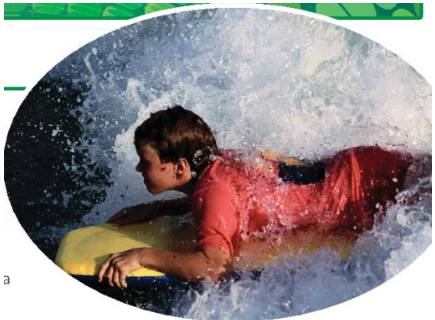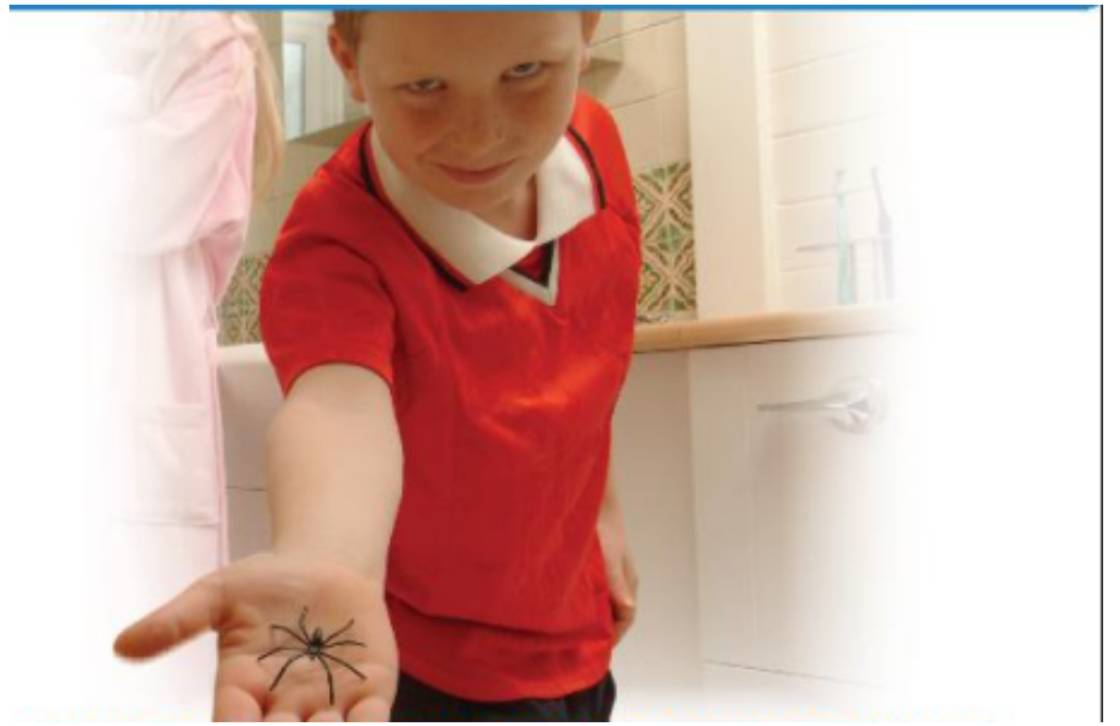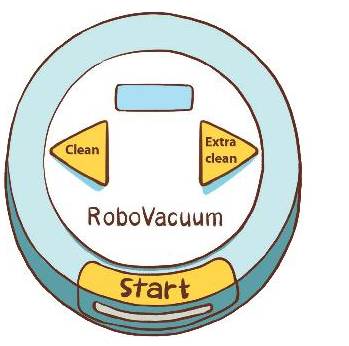Hãy nhập câu hỏi của bạn vào đây, nếu là tài khoản VIP, bạn sẽ được ưu tiên trả lời.

They’re on a plane. The passengers are sitting in their seats and taking meals from the flight attendant. She is offering them their meals. They are saying what kind of meal they want and thanking the flight attendant. The people at the front of the photo are talking about what they can see on the screen.
(Họ đang ở trên máy bay. Các hành khách đang ngồi trên ghế của mình và nhận bữa ăn từ tiếp viên hàng không. Cô ấy đang đưa cho họ bữa ăn của họ. Họ nói về loại đồ ăn họ muốn và cám ơn cô tiếp viên. Những người ở phía trước bức ảnh đang nói về những gì họ có thể nhìn thấy trên màn hình.)

A: Hello. How are you doing?
(Xin chào. Dạo này cậu sao rồi?)
B: Not really well. One of my friends has stopped talking with me but I don’t know why.
(Không ổn lắm. Một trong những người bạn của mình không nói chuyện với mình nữa nhưng mình không biết tại sao nữa.)
A: Maybe you should send a message asking what the problem is?
(Có lẽ cậu nên nhắn tin hỏi thẳng vấn đề?)
B: No way. That just makes the situation worse.
(Không đời nào. Điều đó chỉ làm vấn đề tệ hơn thôi.)
A: In my mind, you just wait and see if the problem goes away. If not, just insist on talking face-to-face with him.
(Theo mình thì cậu nên chờ và xem nếu vấn đề có hết không. Nếu không, thì cứ đòi nói chuyện trực tiếp với nó.)
B: Maybe you’re right. Thanks for the advice.
(Có lẽ cậu đúng. Cảm ơn vì lời khuyên.)

1. learned/learnt | 2. loved | 3. wasn't | 4. got |
5. spent | 6. didn't leave | 7. watched |
|
Kirstie: Hi, Laurie. How are you? Tell me about your summer holiday!
Laurie: Well, for the first three weeks, I was at a summer camp in Cornwall.
Kirstie: Really? That sounds like fun!
Laurie: Yes, it was. I (1) learnt a new sport - bodyboarding.
Kirstie: Wow! That sounds great!
Laurie: Yes. I (2) loved it. It was really exciting - and a bit frightening too!
Kirstie: I bet! What else did you get up to over the summer?
Laurie: Well, the second half of the holiday (3) wasn’t so good. I (4) got a stomach bug and (5) spent nearly a week on the sofa.
Kirstie: Oh dear! How awful!
Laurie: I (6) didn’t leave the house for days. I just (7) watched DVDs. I was so bored!
Tạm dịch:
Kirstie: Chào, Laurie. Cậu thế nào rồi? Kể cho mình về kì nghỉ hè của cậu đi!
Laurie: Chà, trong ba tuần đầu tiên, mình đã đi một trại hè ở Cornwall.
Kirstie: Thật không? Nghe thật vui đó chứ
Laurie: À đúng rồi. Mình đã học một môn thể thao mới – lướt sóng.
Kirstie: Ồ! Nghe thật tuyệt!
Laurie: Đúng rồi. Mình yêu nó lắm. Nó rất là thú vị - pha lẫn chút sợ hãi nữa!
Kirstie: Chắc chắn rồi! Cậu còn làm gì khác cho đến khi hết mùa hè không?
Laurie: Ờm, nửa còn lại của mùa hè cũng không tốt cho lắm. Mình bị viêm dạ dày ruột và phải dành gần một tuần trên ghế sofa.
Kirstie: Ôi trời! Thật tệ làm sao.
Laurie: Mình đã không ra khỏi nhà trong nhiều ngày. Mình chỉ xem DVD. Mình đã rất chán.
Giải thích:
(1) I learnt a new sport - bodyboarding. (Mình đã học một môn thể thao mới – lướt sóng.)
Chúng ta sử dụng thì quá khứ đơn để nói về những việc xảy ra và kết thúc trong quá khứ, do learn là động từ bất quy tắc (learn – learnt – learnt) nên ta có công thức: S + learnt + …
(2) I loved it. (Mình yêu nó lắm.)
Tương tự với cách dùng ở câu trên, nhưng do love là động từ có quy tắc nên ta thêm ‘d’ vào sau động từ: S + loved + …
(3) Well, the second half of the holiday wasn’t so good.
Câu này có cách dùng tương tự câu trên, và do đây là câu phủ định nên ta phải thêm not vào động từ → wasn’t
(4) I got a stomach bug… (Mình bị viêm dạ dày ruột…)
Tương tự với cách dùng ở câu trên, do get là động từ bất quy tắc (get – got - got) nên ta có công thức: S + got + …
(5) and spent nearly a week on the sofa. (và phải dành gần một tuần trên ghế sofa.)
Tương tự với cách dùng ở câu trên, do spend là động từ bất quy tắc (spend – spent -spent) nên ta có công thức: S + spent + …
(6) I didn’t leave the house for days. (Mình đã không ra khỏi nhà trong nhiều ngày.)
Câu này có cách dùng tương tự câu trên, và do đây là câu phủ định nên ta có công thức: S + did not + Vo
(7) I just watched DVDs. (Mình chỉ xem DVD.)
Tương tự với cách dùng ở câu trên, nhưng do watch là động từ có quy tắc nên ta thêm ‘ed’ vào sau động từ: S + watched + …

1. A. worried (lo lắng), B. happy (vui vẻ), excited (hào hứng).
2. Photo A: The man is worried because the people are standing too close to each other and they are not wearing masks.
(Ảnh A: Người đàn ông lo lắng vì mọi người đứng quá gần nhau và họ không đeo khẩu trang.)
Photo B: The girls are happy because it is their graduation day.
(Ảnh B: Các cô gái rất vui vì đây là ngày tốt nghiệp của họ.)
Photo C: The girl's schoolwork is difficult and boring.
(Ảnh C: Bài tập ở trường của cô gái thật khó khăn và nhàm chán.)

The boy is going to play a prank in a bathroom. He puts a fake spider on the floor to scare anyone going to the bath. (Cậu bé đang tính chơi khăm trong nhà tắm. Cậu đặt một con nhện giả trên sàn để hù những ai đi tắm.)

Picture 1: a person is watching an interview.
(Bức tranh 1: 1 người đang xem một cuộc phỏng vấn.)
Picture 2: a person is dealing with puzzels.
(Bức tranh 2: 1 người đang chơi xếp hình.)

1)History was my favourite subject in my academic year and I have learned so many things from the history books I read and learned from teachers related to history and they were so interesting that I later did my graduation majoring History.
Learning about the past history is something that gives us real knowledge about our country, the world and about the human race. I read History in my grade 7 and found it very interesting. This subject taught us about the past of your world, how the social and economic condition was and how the world has been shaped by the different events throughout the time. After that, I become so interested in this subject that I started reading books on History from different writers. There is a famous saying that "to shape the future you must know the past" and history teaches us that. I had been lucky to have some great teachers who have a tremendous way of explaining the topics of History. To me, other subjects like literature and Math were also interesting but I felt a different passion on History.
After I finished my school, I took History as my major and that has greatly influenced me the way I look at the world and to the past and future. Reading and learning history was like travelling through time and generations that excited me so much.
2)Would your students benefit from participation in a study group? Are you too busy to organize and supervise study groups for students in your courses? I’m guessing the answer to both questions is yes. If so, here are some ways teachers can encourage and support student efforts to study together without being “in charge” of the study groups.
Promote study groups – First, include a list of reasons why students should join study groups in the syllabus or on the course website. Maybe there’s a short podcast available in which you talk about the usefulness of study groups. Better yet, if you’ve got some students who studied together in a previous course, ask them to make some comments about their experiences. Second, talk regularly in class about study groups. You can repeat all the benefits, suggest activities that involve good group study strategies, or propose some things they could study together (like problems they could solve, questions they could discuss). You also can solicit feedback from study groups in class or mention content you discussed with a group during office hours.
Make study groups an option – Encourage students to organize their own groups, but offer to help with the process. Nudge them with reminders, such as “Send me an email if you’re interested in being part of a study group.” Have study groups “register” their members, and then report on meeting times and activities. Suggest study activities for the group (ideas like those offered in the next item). Invite the group to meet with you during office hours or to send questions electronically. Offer registered study groups that report regular meetings a bonus point incentive depending on the average of their individual test grades. Let all students know that joining a study group is an option throughout the course.
Demonstrate the value of a study group – Too often when students study together, it’s pretty much a waste of time. If they’re reviewing for a test, they talk about how it can’t possibly be that hard and thereby relieve themselves of the need to study. Or they “go over” their notes, reading what they’ve written but never with any discussion. Group studying is too often accompanied by eating, texting, and regular side conversations.
In order for students to get the most value from their study sessions, you’ll need to help them come up with a different set of strategies. You can do so by holding a review session and asking students to form potential study groups (it’s up to them if they want to meet as a group more often). Give the groups tasks like these: 1) For three minutes everybody reviews their notes and lists five things they think will be on the test and then for five minutes they share lists and create a group list of the items most often mentioned. During the exam debrief, students revisit their list of things they expected to see on the exam. Were those things on the exam? 2) Everybody takes three minutes and writes a question about some content they don’t understand or wish they understood better. The group devotes a specified amount of time to each question, looking for relevant content in their notes and the text. 3) The group has 20 minutes to make one crib sheet that everyone in that group can use during the exam.
Offer proof that study groups improve performance – Compare the scores, points, or grades of those working in study groups with those who aren’t. These are data which should be collected across several sections of the course.
Define study groups broadly – Students tend to think of study groups for exam preparation, but that isn’t the only kind of student collaboration that promotes learning. If there are regularly assigned readings for the course, students can get together to discuss the reading. Again you might let them do this first in class with a good set of prompts so they see how dialogue can enrich and deepen their understanding of the assigned material. Readings are easily discussed in virtual environments, which means the group doesn’t have to find a time when everybody can meet. If various writing assignments are required in the course, students can form peer editing groups. Rubrics, checklists, and prompts can help them get beyond superficial feedback (“you might need a comma here”) to the kind of helpful critique that improves the writing.
I usually get up at 5:30 in the morning. After washing my face and brushing my teeth, I do morning exercises for fifteen minutes. Then I have breakfast with Mum and Dad at 6:15 and leave home for school at 6:30. My classes start at 7:00 and end at 11:15. After that I go home, and have lunch with my family at 12:00. After lunch I usually have a short rest. I study my lessons , read books, and do homework from 1:30 p.m. to 4:00 p.m. I often play badminton with my friends on the ground at 4:30. I come back home and have dinner at 6:00 p.m. After dinner, I often watch the news on TV for thirty minutes. Then I prepare for the new lessons and go to bed at 10:30 p.m

- Yes, they are. eSports are popular in Viet Nam. There are some eSports competitions in Viet Nam.
(Có. Thể thao điện tử rất phổ biến ở Việt Nam. Có một số cuộc thi thể thao điện tử ở Việt Nam.)
- Yes, I do. I think they are a real sport because they are very competitive.
(Có. Tôi nghĩ chúng là một môn thể thao thực sự bởi vì chúng mang tính cạnh tranh cao.)

I think a RoboVacuum should have a button of bacterial filter. It can filter the air after vacuuming.
(Tôi nghĩ RoboVacuum nên có một nút lọc vi khuẩn. Nó có thể lọc không khí sau khi hút bụi.)





One girl is upset. The other girl is talking to her to make her feel better.
(Một cô gái đang đau. Cô gái còn lại đang nói chuyện để cô ấy cảm thấy tốt hơn.)